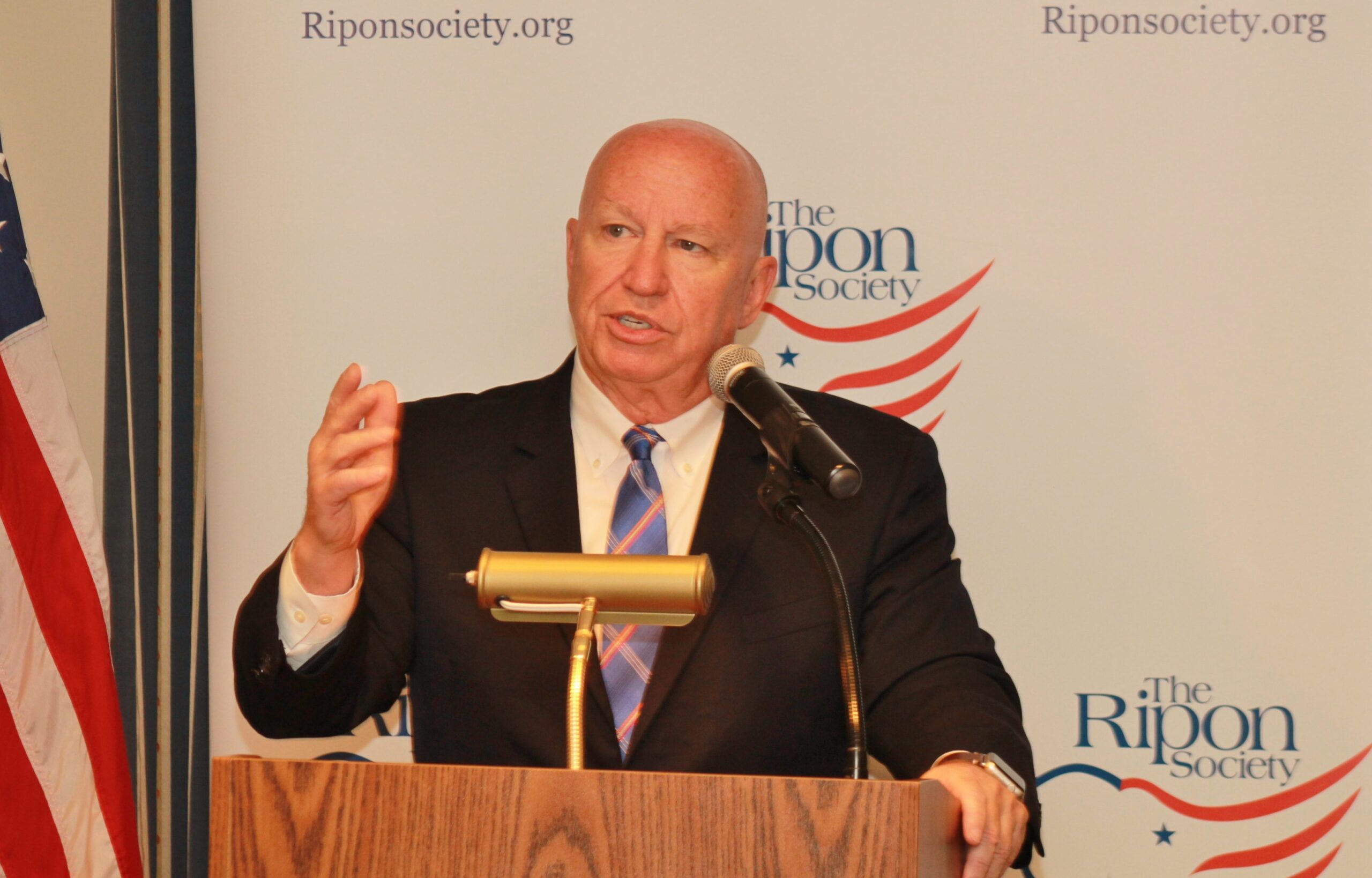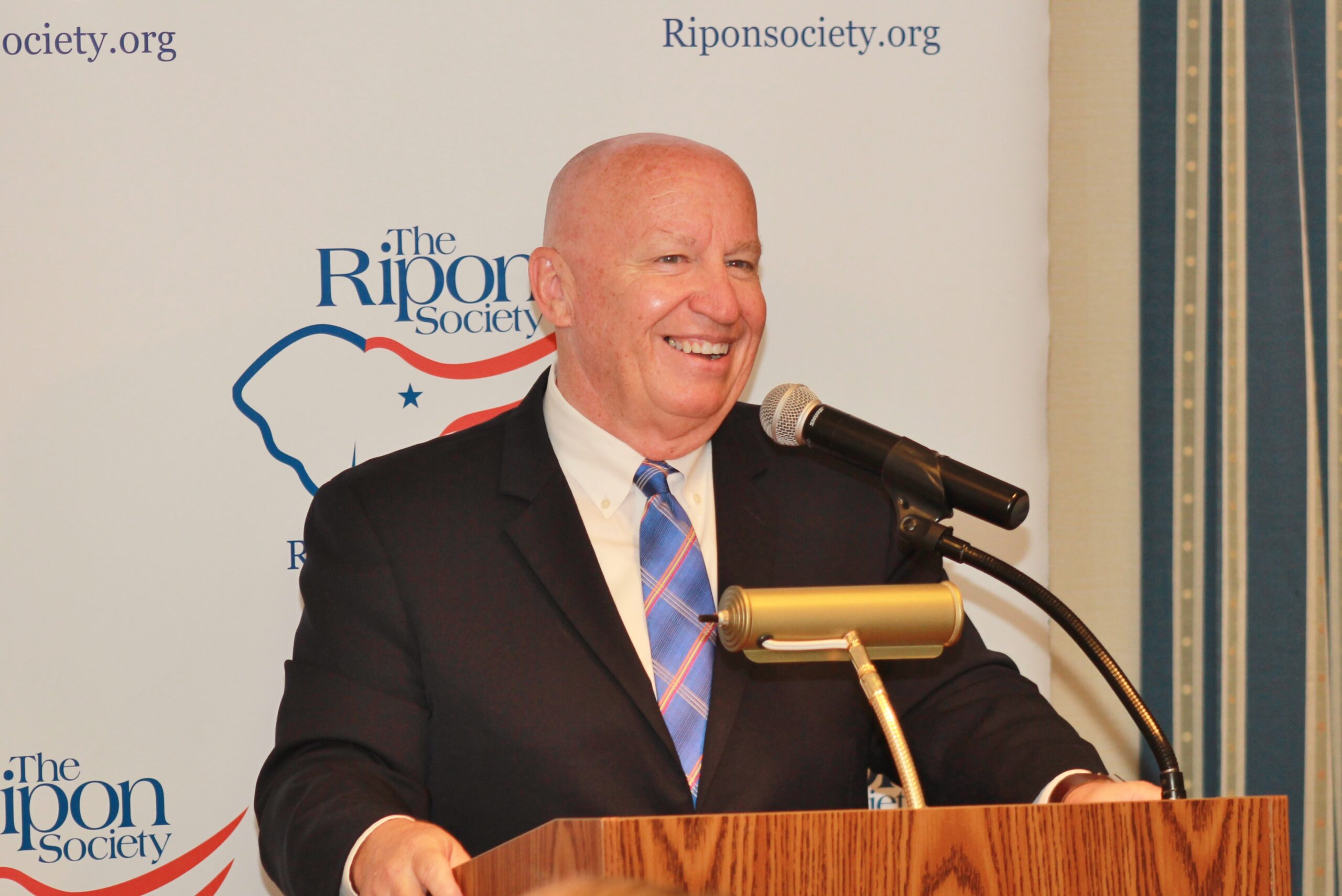 Brady Lays Out His Vision for Reforming the Nation’s Tax Code
Brady Lays Out His Vision for Reforming the Nation’s Tax Code
WASHINGTON, DC – In a speech yesterday morning to a breakfast meeting of The Ripon Society, U.S. Rep. Kevin Brady (TX-8) laid out his vision for reforming the nation’s tax code, saying he would like to see a reform plan that is not only bold and permanent, but approved and signed into law by the end of 2017.
Brady serves as Chairman of the Ways & Means Committee. In this position, he is leading the effort underway on Capitol Hill to rein in the IRS and rewrite the tax code. He also led the Committee’s work to author a reform blueprint that is intended to achieve this goal. Brady opened his remarks by talking about the blueprint, saying it is designed to ease the tax burden on American families here at home, while at the same time leveling the playing field for American businesses abroad.
“We went straight at our competitors with the lowest rates in modern history,” the Texas lawmaker declared, pointing to the fact that the blueprint cuts taxes across-the-board and noting that the U.S. is currently ranked 31st in the world for tax competitiveness. “That’s what it takes for our companies to compete and win. We redesigned the tax system so our local businesses can compete and win anywhere in the world, including here at home. We know that other countries don’t tax worldwide. We still do, and it’s time to end that.”
Brady has served as Chairman of the Ways & Means Committee since November 2015. He previously led two of the Committee’s key panels – Health and Trade – and also served as the top House Republican on the Joint Economic Committee. Before his election to Congress, he spent 18 years as a Chamber of Commerce executive, where he saw first-hand the tax code’s impact on both big business and small business, and how the system had gotten so unwieldly it often could not tell the two apart.
As Ways & Means Chairman, he noted that he has been working closely with the White House and Administration officials to craft a single reform plan that will win support on both ends of Pennsylvania Avenue.
“Perhaps the most encouraging thing I’ve seen is when President Trump agreed to have his team sit down with the House and the Senate and work to unify behind one tax reform plan,” Brady said. “The thought of having two plans or three plans or six plans — which is where it was headed — was not going to get us to the finish line this year … Our tax teams are meeting regularly. The principals from the House, Senate, and the White House are meeting weekly. I’m on the phone with Secretary Mnuchin several times a week at least. So we continue to do the work. And despite all the other white noise that’s going on politically, it has not distracted us one minute about where we need to go. We are still focused.”
With regard to exact timing of the plan, Brady was optimistic but matter-of-fact.
“I tell people, ‘The focus should not be on the month, the focus should be on the year — 2017.’ After 30 years of waiting for bold, pro-growth tax reform, achieving it in one year will be an achievement in itself. So we’re still on that timetable going forward for 2017.”
Noting that the Ways & Means Committee has held numerous hearings and listening sessions to ask Americans what they want from the tax code, Brady said one message was heard loud and clear when it comes to tax reform: “Make it bold, make it permanent, and make it now.”
“Go bold and make it permanent so we can count on it,” he continued, referring to the feedback the Committee received, “but do it now in 2017. That permanence I think is really critical. We’re looking for the greatest growth for the greatest number of years. And the way you do that is through the Reagan model in 1986, where he went bold with reforms. It balanced within the budget. Businesses could count on it, and families could count on it.”
As for those who remain skeptical that tax reform can be accomplished this year, Brady suggested that the past should serve as a guide here, as well.
“Tax reform is one of those issues that will be declared dead many times before it passes,” he observed. “Eight weeks before the tax reform bill passed in 1986, Senator Malcolm Wallop said, ‘If this were a horse, I would take it out back and shoot it.’ And yet eight weeks later, he was watching the President sign the bill into law. Tax reform is a process. You work through a lot of issues. There is a lot in the current code that people feel strongly about. We made a decision to go very bold from the House standpoint, because we believe that’s where we need to go to compete.”
Following his remarks, Brady took a number of questions, including one about his first two years as Ways & Means Chairman and what he has found most surprising about the job. Here, too, the veteran legislator was not only realistic, but relentlessly upbeat.
 “I knew it was the best job in town and it is,” he said. “I knew we had 24 of the smartest Republicans around on the Committee — and that’s proven to be the case, as well. In any of these positions, some days you’re up and some days you’re not. That’s just sort of the way life works in the political world. I don’t know that I’ve enjoyed every moment… But I really love this job. I love the issues we’re involved in. And after we finish health care and tax reform and try to get trade back on track and see where we can help on infrastructure, I’ve got some plans on our entitlement programs as well, because that’s the other part of getting our financial house in order.
“I knew it was the best job in town and it is,” he said. “I knew we had 24 of the smartest Republicans around on the Committee — and that’s proven to be the case, as well. In any of these positions, some days you’re up and some days you’re not. That’s just sort of the way life works in the political world. I don’t know that I’ve enjoyed every moment… But I really love this job. I love the issues we’re involved in. And after we finish health care and tax reform and try to get trade back on track and see where we can help on infrastructure, I’ve got some plans on our entitlement programs as well, because that’s the other part of getting our financial house in order.
“I’ll finish with this. These are all big issues, none more challenging than tax reform. For Congress, it is the challenge of a lifetime every time. And we’re kind of privileged. It may not feel like it right now, but we really do have the opportunity to dramatically change the course of this country. And not just for us. We always talk about making a difference for our kids and grandkids. We really have a chance to do that. I’m convinced we can, and I’m convinced we can this year.”
To view Chairman Brady’s remarks before The Ripon Society’s breakfast discussion yesterday morning, please click on the link below:
The Ripon Society is a public policy organization that was founded in 1962 and takes its name from the town where the Republican Party was born in 1854 – Ripon, Wisconsin. One of the main goals of The Ripon Society is to promote the ideas and principles that have made America great and contributed to the GOP’s success. These ideas include keeping our nation secure, keeping taxes low and having a federal government that is smaller, smarter and more accountable to the people.



